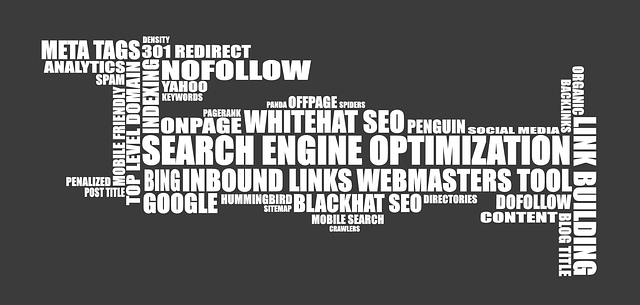Link building is a strategic SEO process that boosts online visibility and search rankings by acquiring high-quality backlinks from reputable websites. Directory listings, both niche-specific and general, are valuable assets for modern link acquisition. To maximize SEO impact, focus on choosing relevant directories with good backlink potential, optimizing business profiles, and crafting compelling descriptions with targeted keywords. Evaluating backlinks for quality and relevance ensures credibility and enhances search engine rankings. Avoid low-quality directories and prioritize reputable, industry-specific resources to build trust and foster successful link-building strategies.
In today’s digital landscape, effective link building is a cornerstone of successful SEO strategies. This comprehensive guide explores directory listings as a powerful tool for acquiring high-quality backlinks. We delve into the fundamentals of understanding link building and its profound impact on search engine rankings. By navigating through various online directories, you can strategically enhance your online visibility. This article offers insights into choosing the right platform, optimizing profiles, and effective submission tactics to maximize exposure. Learn how to avoid common pitfalls and ensure a successful directory listing campaign for robust link building.
Understanding Link Building and its Impact on SEO

Link building is a strategic process that involves acquiring backlinks from other websites, which serve as digital votes of confidence in your site’s authority and relevance. It’s a fundamental aspect of search engine optimization (SEO) because search engines like Google use backlinks as one of their primary signals to determine a website’s ranking in search results. The more high-quality backlinks you have from reputable sources, the higher your site is likely to appear in organic search rankings.
This strategy goes beyond simply accumulating links; it’s about cultivating relationships and creating valuable content that naturally attracts links. Effective link building strategies include guest blogging, where you contribute articles to other websites in your niche, securing mentions in industry publications, and producing content that offers genuine value to users, encouraging them to share it organically and earn backlinks naturally. Understanding the art of link building is crucial for any website aiming to enhance its online visibility and drive targeted traffic through search engines.
The Role of Directory Listings in Link Acquisition

Directory listings play a pivotal role in modern link acquisition strategies, serving as powerful tools for businesses to enhance their online visibility and attract backlinks. These listings act as digital directories or databases that organize websites based on specific categories and niches, making it easier for both users and search engines to discover relevant content. By submitting your website to reputable directories, you increase its chances of being noticed by potential link partners.
When a business is listed in relevant and authoritative directories, it exposes itself to a targeted audience of industry-specific websites and online platforms. This exposure creates opportunities for natural backlinks as other webmasters recognize the value of your content and willingly link to it. Directory listings also contribute to building trust and credibility, as users often rely on these sources to find reliable information. As a result, search engines may view your website as more trustworthy and relevant, positively influencing your overall SEO efforts and link-building campaign success.
Types of Online Directories for Backlink Building

There are various types of online directories that can be valuable resources for link building strategies. These directories range from industry-specific listings to general web indices, each offering unique opportunities for businesses and website owners to enhance their online presence. For instance, niche-focused directories allow you to connect with target audiences and relevant websites within your industry, making it easier to acquire backlinks from authoritative sources.
General online directories, on the other hand, cover a wide range of topics and categories, attracting diverse traffic. Submitting your website to these directories can introduce your content to new audiences, increasing the potential for natural backlinks as users engage with and share your resources. Effective utilization of both types of directories can significantly contribute to a robust link building campaign, thereby improving search engine rankings and driving organic traffic.
Factors to Consider when Choosing a Directory Listing Platform

When selecting a directory listing platform for your link building strategy, several key factors come into play. Firstly, consider the niche relevance of the directories; aligning with your target audience and industry is crucial for both visibility and credibility. Not all directories are created equal—some may offer better exposure and higher-quality backlinks depending on their reputation and the profiles of listed sites.
Additionally, assess the submission guidelines and processes to ensure they align with your content strategy and SEO best practices. Some platforms might require specific formats or have strict criteria for link placement and anchor text usage. Furthermore, keep an eye out for user reviews and feedback from other businesses to gauge the platform’s reliability and effectiveness in terms of driving relevant traffic and backlinks, ultimately enhancing your overall Link Building efforts.
Optimizing Your Business Profile for Maximum Exposure

Optimizing your business profile across various online directories is a strategic move in any link-building campaign. When potential customers search for services related to your industry, they often start by looking through local business listings. Therefore, ensuring your profile stands out and includes relevant keywords can significantly increase your visibility.
A well-optimized profile should include a compelling description of your business, highlighting unique selling points and services offered. Incorporate industry-specific keywords naturally to improve search rankings. Additionally, claim your listings on prominent directories like Google My Business, Yelp, and local trade associations. These platforms offer direct links back to your website, enhancing your overall link profile and driving organic traffic.
Strategies for Effective Submission and Promotion

When it comes to effective directory listing strategies, the key lies in a well-planned submission and promotion process. Begin by researching relevant and high-authority directories within your niche. Ensure these directories have a solid reputation and offer quality backlinks, aligning with your target audience’s interests. Before submitting, optimize your list entries by crafting compelling titles and descriptions that include targeted keywords. This practice enhances visibility and click-through rates.
Promotion is an integral part of the process. Utilize social media platforms to share your listings, engaging with influencers and communities relevant to your industry. Build relationships with webmasters and industry peers, as they can provide valuable insights and potential backlink opportunities. Regularly monitor and update your listed URLs, ensuring they remain active and accessible. This proactive approach will not only attract backlinks but also establish your website’s authority in the eyes of search engines, fostering a robust Link Building strategy.
Analyzing the Quality and Relevance of Backlinks

When evaluating directory listings for backlinks, assessing their quality and relevance is paramount in any effective link building strategy. Each backlink should be treated as a vote of confidence from one website to another, influencing your search engine rankings. Quality backlinks stem from reputable, relevant sources with high domain authority, indicating trustworthiness to search engines like Google. These links not only enhance your site’s credibility but also increase its visibility and potential for organic traffic.
Relevancy is equally crucial. A backlink from a directory listing that aligns with your niche or industry context carries more weight than one from an unrelated or low-quality site. Relevant backlinks signal to search engines that your content is valuable and deserves a higher ranking within specific categories or keywords. Therefore, when analyzing directory listings, focus on the authority and relevance of the linking sites to maximize the positive impact on your SEO efforts through effective link building.
Common Mistakes to Avoid in Directory Listing Campaigns

When crafting a directory listing campaign for backlinks, it’s essential to steer clear of several common pitfalls that can hamper your SEO efforts. One major mistake is submitting your website to low-quality or irrelevant directories. Such listings carry little weight in the eyes of search engines and may even harm your site’s reputation. Focus instead on reputable, industry-specific, and well-maintained directories that align with your target audience.
Another blunder is creating generic and unoptimized directory listings. Each submission should be tailored to highlight your website’s unique value proposition. Avoid vague descriptions and make sure to include relevant keywords naturally. Remember, the goal is not just to secure backlinks but also to enhance your site’s visibility and credibility in specific niches, thereby fostering effective link building strategies.
